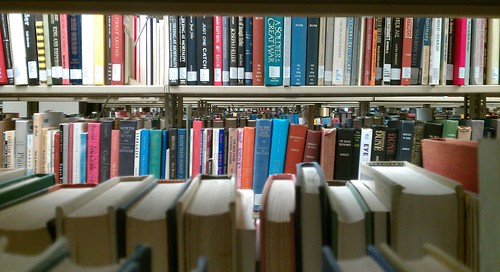As a long-time user of Google Reader to manage the feeds of the blogs and other online publications I read and am interested in, I was understandably among those up in arms when Google announced, tucked into a laundry list of other “Spring Cleaning” closures, that it is shutting down Reader as of July 1.
How can they do this to us, the loyal users, after all we…
…oh, right. it’s a free tool.
It’s still a bit unsettling. I have two months to decide what to do, whether finding another RSS reader to use, or to just let the river of brilliant recommendations from my online “friends” (and friends) wash over me. OK, that sounds like a bad idea, people are idiots, why would I let other humans tell me what to read (I’m kidding. Sort of).
Aside from my own slightly-less-important-than-a-hill-of-beans problem with all this, I also thought of a few of the surrounding issues:
- RSS: Dead? Not Dead? Gravely Ill? Perhaps a Slight Cough and Chills? I never understood why some people who put RSS forward as a consumer-facing technology. I also didn’t understand how; why call it RSS? That’s weird. It’s an underlying technology, and there’s no reason to think it will go away. Google Reader going away is pretty high profile though, and it makes people worry yet again about the future of Feedburner, the Google-owned service that makes it easy to set up RSS feeds. But again: RSS is an underling technology. If we move on from readers, I doubt it will disappear.
- Is Reading Blogs a Fading Art? My relationship to my Reader feed list has changed; I no longer slavishly scroll the headlines, and I do (despite my snarky comments above) take recommendations from people I know for things to read outside that list. But I still have a list of blogs, or certainly types of blogs, I want to read for fun and professionally. My list s badly in need of pruning, but it looks like I’ll be doing that no matter what.
- What About Google Plus? My first thought on hearing the news was that Google would simply roll some sort of reader feature into Google Plus, their social network. Google has been good about forcing people onto the network, even if most of us really don’t want to use it yet, through forced signups via other Google services like YouTube and GMail, or the mere fear that not being on Google Plus will jeopardize search rankings. No G+ Reader feature is evident as I write this, but that would make sense- and finally make Google Plus a more regular part of my daily routine. Why not? I wouldn’t be surprised if something like that happens, if only to force some of us on the service and to create more traffic through Google-assisted sharing of content.
- Consolidation of Tools is Here? Posterous. Delicious (almost). Now Reader, just to name three very recent examples. In fact, Google itself has a rich history of killing services, mostly from its Labs branch. Free tools that many people use are nevertheless being shuttered. They don’t make money, so why should they continue as utilities. Well, perhaps there are reasons, but our reliance on these tools makes for a fragile relationship. I’m upset that I have to find an alternative- and perhaps a radical one- for Google Reader, but I really have nothing to complain about. If this were a paid service I would be more upset, but it’s not so I just shut up and move on.
So, on to more important questions: who wants to read Google to me?
Image credit: srharris on Flickr


I’m with you….not sure what to do with my beloved RSS feed. Sure, serendipity will prevail in some cases and I’ll still see much of the content. But there are a few industry and personal blogs where I want to see each and every post. I’m holding out for a hero.
It’ll pop up somewhere- imported feeds into feedly, which I like but takes some getting used to . Might even be betterm I don’t know yet
[…] Coming to Grips with the Death of Google Reader […]
[…] Coming to Grips with the Death of Google Reader […]